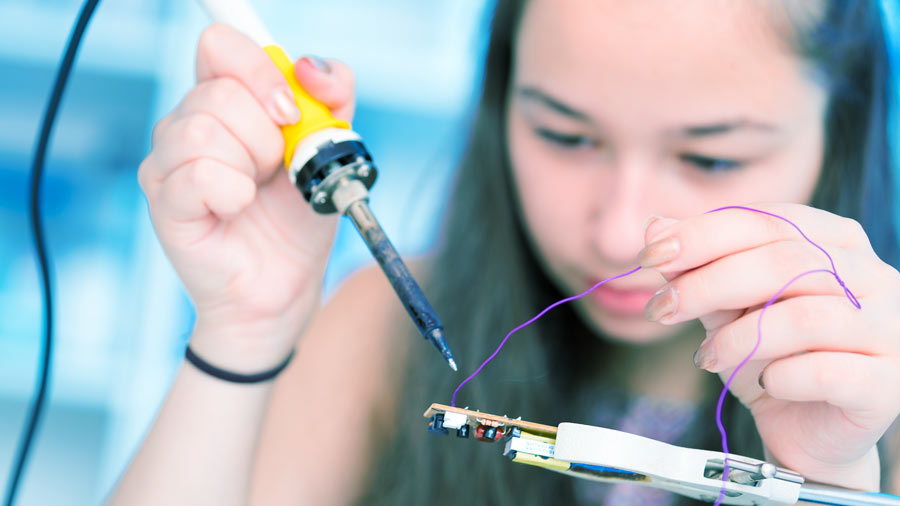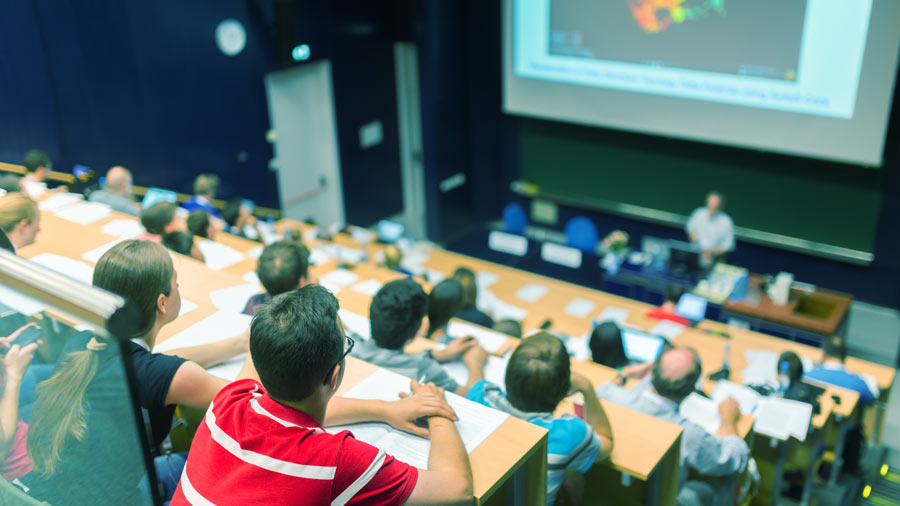These are my favorite quotes, broadcasted by IEEE Facebook, that I like to share with my engineering undergraduate students:
– “Scientists study the world as it is; engineers create the world that has never been.” – Theodore van Kármán – Aerospace engineer and physicist.
– “As engineers, we were going to be in a position to change the world – not just study it.” – Henry Petroski – Engineer.
– “Engineering is the application of science for human benefit.” – J. M. Prausnitz – Chemical Engineer.
– “We are continually faced by great opportunities brilliantly disguised as insoluble problems.” – Lee Iacocca – Engineer and Automobile Executive.
There are several skills that all undergraduate engineering students must develop during their coursework, including scientific vision, reflective thinking, and the ability to understand the relationships among social, cultural, environmental, economic, and political contexts that are consistent with human rights. At the same time, they should be guided by human values such as dignity, freedom, equality, justice, and peace. So, how can these skills become better developed in students?
Motivation is key! It is possible to take advantage of world Climate Change Crisis to motivate students to learn better, to show that theoretical classes make sense, and to say that they can effectively change the world! Many courses have high dropout rates. Engineering is an example: many students do not understand why they have so many theoretical classes pertaining to physical and mathematical concepts. They often drop these courses because their initial expectation of solving problems has been frustrated by complex conceptual, theoretical classes without any apparent direct application. But what if students realized that this knowledge allowed them to act as protagonists presenting viable solutions for the world with a strong technical and scientific basis?
Climate change is one of the greatest challenges of our time. There is a strong socio-centered environmental movement in progress advocating that energy generation should be done in a different, more sustainable way and not just with business as usual. Structural change in this sector is necessary, and engineering is crucial for proposing new sustainable solutions. The IPCC 2014 Report states that the stabilization of GHG concentrations at low levels requires a fundamental transformation of the energy supply system. The UN 2019 Global Sustainable Development Report presents a call to action: international and national entities and stakeholders must collaborate to reshape the global energy system. The IEA 2020 Energy Technology Perspectives Reports stats that achieving net-zero emissions requires a radical transformation in the way we supply, transform and use energy. Thus, there is an urgent demand for creative and bold students to propose new perspectives to society. Students can and should be challenged to do this!
The 2010 UNESCO Engineering Report sheds new light on the need to transform engineering education, curricula and teaching methods to emphasize relevance and a problem-solving approach to engineering. A clear finding is that when young people, the wider public and policy-makers see information and indicators showing that engineering, innovation and technology are part of the solution to global issues, their attention and interest are raised and they are attracted to engineering. The 2014 UNESCO Engineering Education Report states that the important contribution that engineering make to society is not sufficiently emphasized for, or promoted effectively, contributing to high failure/dropout rates. The course design should be arranged to be interesting and to enhance motivation as this will be of critical significance in facilitating student development and reducing student failure. The 2021 UNESCO Engineering Report states the importance of engineering for sustainable development, and the need to address justice and peace in the curriculum.
This is the time to explore fundamental concepts and bold aspirations! Professors should consider students, equipped with the knowledge that they have been learning at their university, as potential protagonists to explore new solutions that society demands.
Far from viewing the present period as simply a hiatus to be endured with patience, it is important to recognize that the state of the world has rendered the need for meaningful service to humanity more urgent. How can professors establish a link between the knowledge learned by students at university and the need for solutions to alleviate the suffering of society? Students are willing to learn this material!
This is a time for noble aims, high resolve, and intensive endeavor. We must strengthen our resilience toward mighty challenges and make a constructive contribution to human affairs. Professors must make it possible for students to visualize the practical application of theory, so they will be able to propose solutions to new problems that are arising now. University education should not be an end, but a better way to prepare each person to serve humanity. The motivation of each student should be to learn with dedication and joy.
All students should be encouraged to think from this perspective and to become engaged with renewed motivation in their assignments. The focus should always be to try and associate the content taught with a practical application that can contribute to the betterment of the world. This should also be the primary reason for the exchange of ideas between professors and students.
Society requires new ideas on how to do activities in a more fair, humanitarian, and sustainable way. For sure, the innovative ideas of the new generation of professionals, the current university students, will be very important in shaping the future. As ‘Abdu’l-Bahá (1844-1921), the son of the prophet founder of the Baha’i Faith, said: “Teach them to dedicate their lives to matters of great import, and inspire them to undertake studies that will benefit mankind”.
References:
INTERGOVERNMENTAL PANEL ON CLIMATE CHANGE (IPCC). Mitigation of climate change. 2014.
INTERNATIONAL ENERGY AGENCY (IEA). Energy Technology Perspectives. 2020.
UNESCO. Engineering: Issues, Challenges and Opportunities for Development. 2010.
UNESCO. Engineering Education: Transformation and Innovation. 2014.




